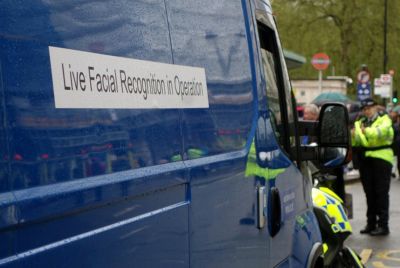Muslim Cashier in UK Supermarket Sparks Fierce Debate After Saying He's Uncomfortable Handling Alcohol and Pork
UK video reignites debate, echoing Costco and Elauf cases.

A Muslim supermarket employee in the UK posted a video saying he feels bad for colleagues who must handle pork and alcohol, igniting fierce debate about faith, frontline duties, and what accommodation looks like in today's job market.
The Video That Sparked A Debate
A Muslim man in the UK shared a video on social media where he said he felt bad for fellow Muslim employees in supermarkets. He explained it was hard to see Muslims having to handle pork and alcohol, which are forbidden in Islam.
"Really hard seeing brothers and sisters at the checkout at the supermarket like I am now and you see brothers and sisters with their hijab and brothers with their beards and the name tag with their name on it and they're having to handle alcohol and it hurts," said the man.
Job Pressures And A Plea For Alternatives
While noting the crisis in the UK job market, he said he hoped Muslims would find roles that do not require handling items that go against their faith.
"It's not easy finding a job in the UK, especially in this situation right now and sometimes these are jobs that are available. And may Allah make it easier for them to find something better."
"Sometimes in some of these places you are able to ask to be on the vegetable counter or do some job in the company which doesn't involve you handling alcohol or something else which is haram," the man continued, with 'haram' meaning 'forbidden.' "These are the challenges living in the west."
The Costco Lawsuit That Echoes The Dispute
The debate comes years after a similar incident at a US Costco branch. As per The Independent in 2015, the wholesale company was facing a lawsuit by a former employee citing religious discrimination.
Back in 2012, Jean Camara, a devout Muslim working as a cashier's assistant at Costco's Sunset Park branch in Brooklyn, New York, refused to touch pork and alcohol products on a conveyor belt due to his beliefs. Camara was instead made to handle shopping carts.
Upon requesting a move to the electronics department, he was told no positions were available. "Just because you have a religious belief doesn't give anyone the right to treat you different," Camara told ABC7 Eyewitness News at the time. Camara was fired 16 days after he filed a human rights complaint for insubordinate conduct.
What The Abercrombie Hijab Case Raised
Similarly, a Muslim woman, Samantha Elauf, was rejected by Abercrombie and Fitch for wearing a hijab. The retailer argued that Elauf did not meet the company's appearance standards under its 'look policy.'
This incident, which made its way to the Supreme Court, signalled to be in favour of Elauf. Her case presented courts with the question of whether the employee or the employer is responsible for citing faith for federal law to protect them from discrimination.
© Copyright IBTimes 2025. All rights reserved.





















